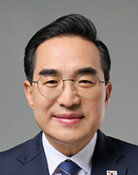[Opinion] Political Poverty Claims
[Opinion] Political Poverty Claims
Posted April. 20, 2006 03:00,
I transferred to three elementary schools because my family frequently moved. When I was a fourth grader, I entered Geumhwa Elementary School in Seodaemun-gu, Seoul. At the time, I remember I was extremely poor. My mother was very sick every day. In those days, we boiled a casserole of bean-curd for meals. I went through extreme poverty. During that time, Samyang Ramen, a new brand of instant noodle, appeared for the first time.
This is posted on the private homepage of Kang Kum-sil, who officially announced her bid for Seoul Mayors office in the May 31 local elections. Her rival, Oh Se-hoon, a well-known attorney and former GNP legislator, also revealed he had a hard childhood in detail. He said, I was not well-off. So I managed to live on instant noodles for several months.
Several candidates who announced their bids for the upcoming local elections in May declared through a variety of mass media that they have had hard times. Hong Joon-pyo, who is competing for the Seoul mayoral post, said, When I was in middle-high school, I didnt prepare a lunch box and I could only try to satisfy my hunger with tap water, Chin Dae-je, who is running for Gyeonggi Province governor, said, I once lived in a shack but it was removed.
Candidates should have a responsibility to reveal who they are frankly and in detail as voters should know what histories candidates have from the past up to now. If a candidate seems to be equal to another one, voters feel that those who managed to pull through seem to be good. If warm-hearted ones win the elections, they will likely do their jobs well.
But candidates confessions of poverty are not moving voters deeply. One of the reasons is that most Koreans who lived through the 1960s and 1970s faced dire economic times. Unlike candidates, those who were in a real dire poverty tend to avoid the subject.
Promising candidates in the next local elections in May have been on the fast track in Korean society. Their saying, I once was in poverty, still falls short of appealing to ordinary people as Koreas poverty scars linger.
State-of-the-art marketing strategies are being mobilized in the local elections. Following their own political campaigns to improve their images, poverty marketing strategies are emerging. But the final decision is in the hands of voters, and candidates often lament how mercurial voter sentiment can be. But voter sentiment hardly changes as easily as candidates think. Candidates facing the upcoming local election should struggle to get to know how voter sentiment can be moved.
Hong Chan-sik, Editorial Writer chansik@donga.com






![[단독]“거부도 못해” 요양병원 ‘콧줄 환자’ 8만명](https://dimg.donga.com/c/138/175/90/1/wps/NEWS/IMAGE/2026/03/02/133450041.2.jpg)
